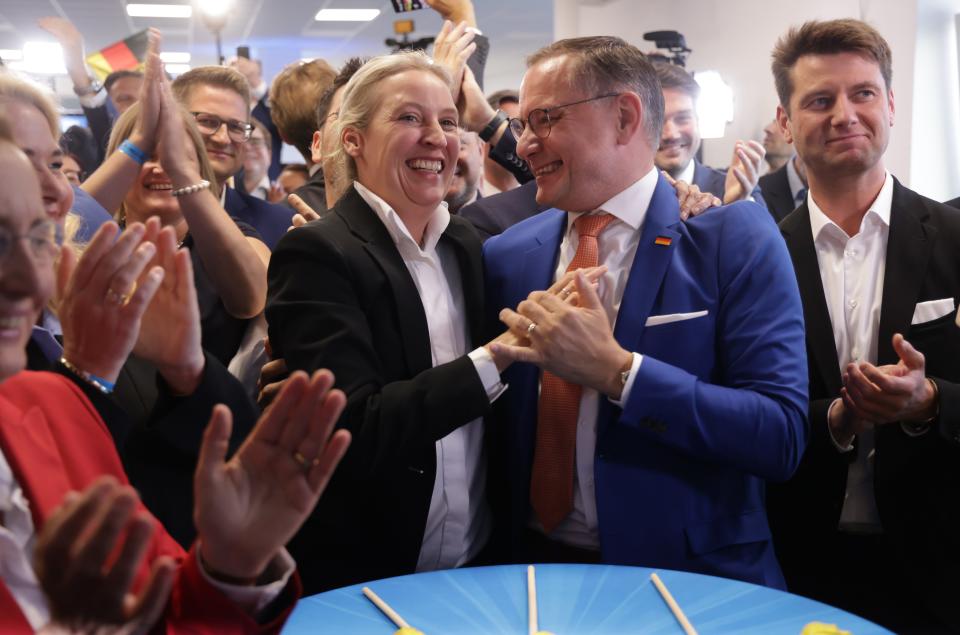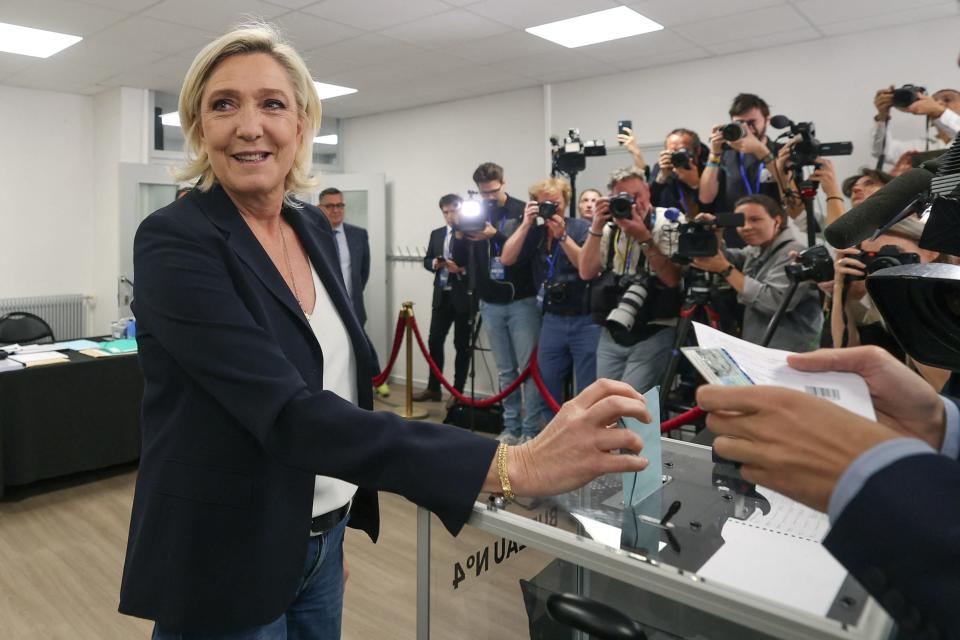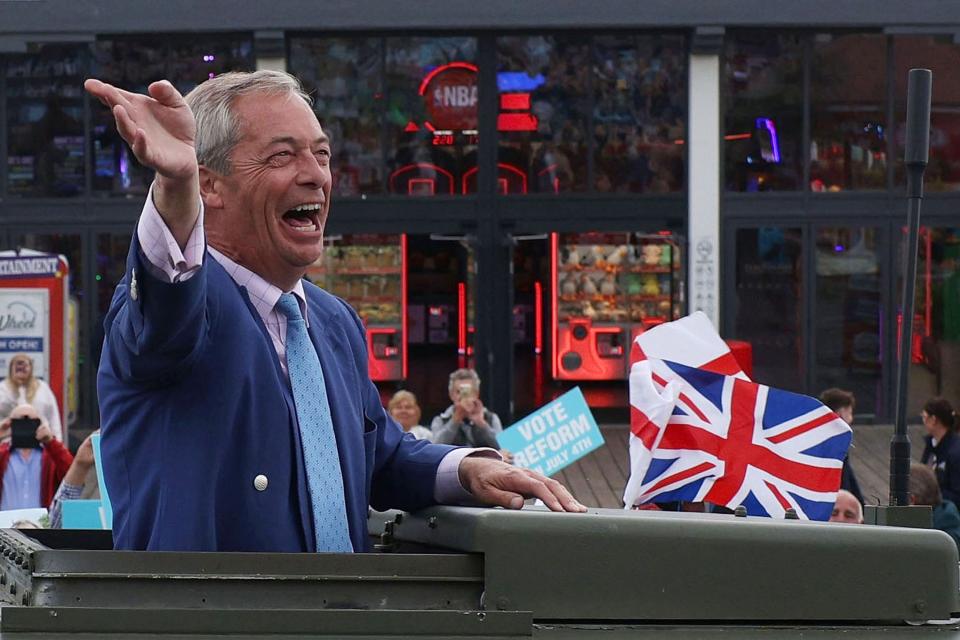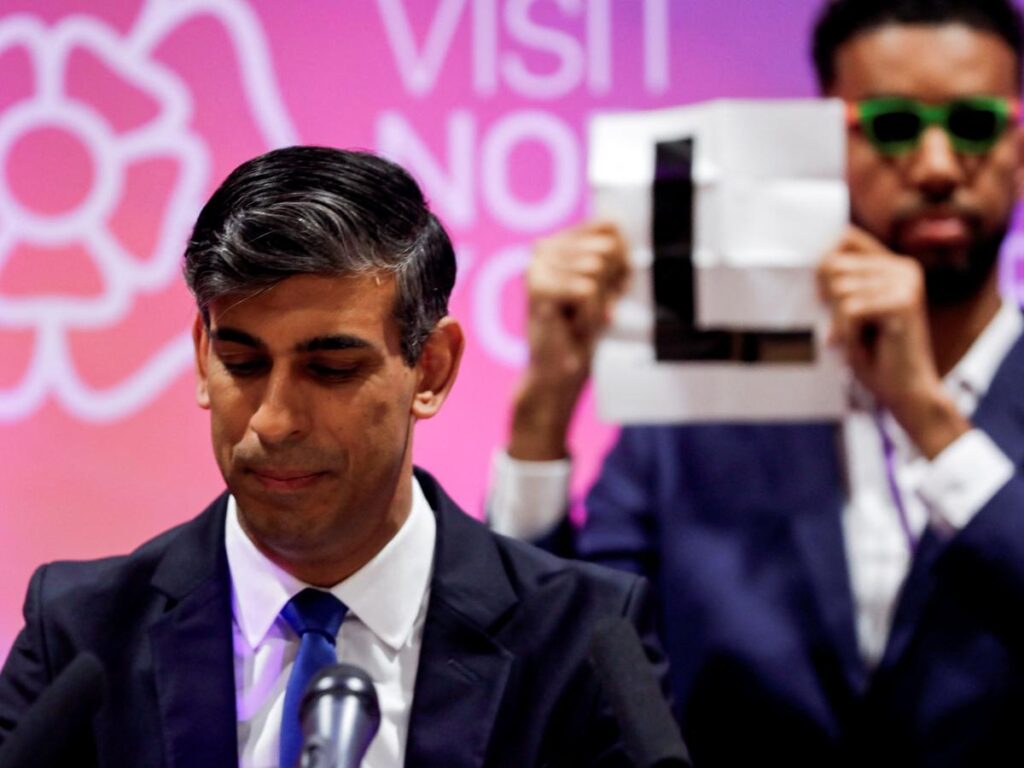-
The United Kingdom has voted to return the Labour Party to power, destroying the Tories’ 14-year majority.
-
The stunning fall of the right in the country is at odds with the general trend in Europe.
-
Germany and France are on the verge of seeing the far right reach critical mass. In countries like Italy, it has already happened.
Now that calm has returned after the British general election, it is clear that the Conservatives have suffered a great loss.
The July 4 results were a dramatic rejection of the incumbent Conservative Party leadership that has been in power for 14 years, with Prime Minister Rishi SunakThe faction loses more than 240 seats as the count is completed.
Sunak, who admitted defeat on Friday morning UK timewill likely be replaced by the leader of the Labour Party Keir Starmer.
Starmer has spent more than a decade trying to transform his left-wing party into a more centrist movement, kicking out socialist elements, including stalwart Jeremy Corbyn.
He is often seen as a straightforward, methodical politician and has promised to improve vulnerabilities in the health care system and renegotiate the United Kingdom’s Brexit deal with the European Union —which he said was “screwed up.”
The rise of Labour, largely predicted by pre-election polls, makes the UK a clear outsider in this year’s political shifts in Western Europe.
In the European Parliament elections in June, far-right factions have reached critical mass in the continent’s key countries, with the results leading to a collapse of power long held by left-wing governments.
Germany’s Scholz denies early elections
The German Alternative for Germany (AfD), led by Alice Weidel And Tino Chrupallaovertook Chancellor Olaf Scholz’s Social Democratic Party in the European elections, despite losing key candidates and battling a series of scandals.


Now in second place with 16% of the German vote, the far-right party has taken the result as a sign that national support is changing in its favor and called for early elections in its country. However, Scholz has rejected the idea.
France’s Macron in Danger
For France and its president it’s a different story Emmanuel Macronwhose Renaissance party won only 14.6% of the vote in the European elections.
While the Rassemblement National, a far-right faction led by Marine Le Pen, was in first place with 31.3% of the French vote, Macron called for early elections for his country’s national parliament.


As the first round of the French election concluded on Sunday, the results showed Le Pen’s faction takes a big lead from his left-wing and centrist opponents.
The second round will take place on July 7. The run-up to it is a chaotic attempt to keep the far right out of power.
Hundreds of candidates have withdrawnto prevent the votes from being divided between the centre and the left.
Meanwhile, Macron, whose approval ratings have fallen to their lowest point in his seven-year tenure as president, is busy defending his position. a low profile.
The Brothers of Italy win a show of support
In Italy, the far right has already consolidated its power in the form of a prime minister Giorgia Meloni’s ultra-conservative Brothers of Italy, which became the governing party in 2022.


In a sign of continued support for her partyit won almost 29% of the national vote in the European Parliament elections in June, compared to 6% in 2019.
The Democratic Party came in second with 24.1% of the Italian vote.
Elsewhere, much of Europe leans to the right. Spanish People’s Partya centre-right group, won 34% of the vote in the European Parliament, defeating the Socialist government of incumbent Prime Minister Pedro Sanchez.
Yet the far-right faction there, Vox, struggled to gain a foothold, receiving just 9.6% of the vote, compared to 12.4% in 2019.
The Netherlands has also just formed a right-wing government, of which the anti-immigration and populist Party for Freedom led by Geert Wilders makes up the largest part.
Certainly, right-wing populism in the UK is seeing a clearer beginning. At the time of writing, Nigel FarageReform UK won 4 seats after winning nothing in 2019.
Farage, who led the Brexit movement, has now finally been elected to the country’s parliament with 46% of the vote in Clacton.


The dramatic changes in the polls come amid growing disdain for the economic challenges facing many parts of the continent, such as rising living costs and inflation.
Some observers think the shifts are a sign of pure anti-establishment sentimentwhere voters blame whoever is in power, regardless of whether they are left or right.
“There is a lot of dissatisfaction with the way democracy is working,” Richard Wike, director of global attitudes research at the Pew Research Center, said in an episode of FiveThirtyEight’s June political podcast.
Read the original article at Business insider







